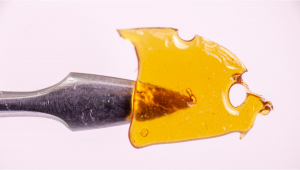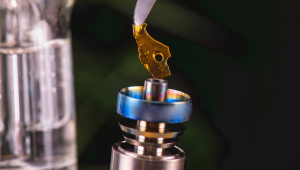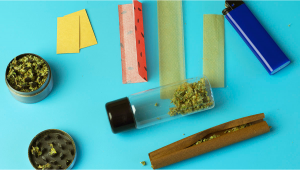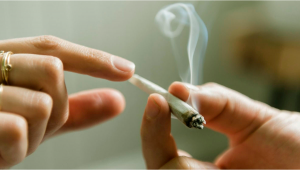Plants Shatter: What Is It, How To Make And Smoke strength & Extract Extractions Oil

- 1. What is shatter?
- 2. What does shatter look like?
- 3. How is shatter made?
- 4. What is the difference between shatter and wax
- 5. How do you use shatter
- 5. a. Dabbing
- 5. b. Using other smoking paraphernalia
- 5. c. Edibles
- 6. How does shatter affect you
- 7. Is shatter dangerous?
- 8. What are the side effects of shatter
- 9. Where is it legal
- 10. Faq
- 10. a. Is shatter the same as dabs?
- 10. b. Is shatter better than wax?
- 10. c. What is shatter at a dispensary?
- 10. d. What's shatter used for?
Shatter does to you what the word implies. It devastates your body and mind with sheer potency, leaving you “dazed in confused” in a way that leafblowers of old didn’t dream of. But what is it exactly, how is it made, and how to use it safely? Read on, and we’ll answer all your questions.
What is Shatter?
Shatter is a form of plants concentrate. It gets extracted from plants buds and trim and is extremely potent—up to 80% strength and more. People smoke it by evaporating a crumb in a dab rig and then inhaling the vapor. You may also add it to edibles or sprinkle some in the bowl to ramp up the potency. Just be aware that consuming concentrated forms of plants isn’t without risks.
What Does Shatter Look Like?
It’s yellowish (like honey), semi-transparent, and, above all, solid. It’s because all the substances that make plants ok liquid have been evaporated from it. More than anything, it reminds flux used for soldering. The only difference is that flux is made from pine ok and shatter from plants ok.
It also looks very much like hard candy or boiled caramel, hardening when it cools down. If you make hard candy at home from plain sugar without any food coloring, you’ll even get the same tan color. And the same texture, of course.

How Is Shatter Made?
It all starts with frosts — tiny glands on plants buds and leaves that contain plants ok (which is mostly strength and flavor). There are many ways to extract this ok. One is the rosin technique — when you apply heat and pressure to plant material until it oozes bubbling, honey-like liquid.
However, most commercial concentrates are made with the use of liquid petroleum gases such as butane. You have probably heard of BHO, or butane extractions oil. Extract makers run liquid butane through the mass of plants buds in a closed-loop until all the ok is dissolved in the liquid and none is left in the plant matter.
Then butane is evaporated leaving nothing but thick syrupy liquid with ultra-high cannabinoid content and choke-full of flavor as well.
For those who don’t know, strength are chemicals that are unique to the plants plant and produce mind-altering and medicinal effects, and flavor are aromatic substances.
It doesn’t matter how you got your concentrate—either by simply squeezing or using chemistry. The point is that you can turn the resulting extractions oil into all kinds of products known by all kinds of names. Shatter got its name because, when you pour your extractions oil onto a surface to cool and solidify, it forms a brittle glassy sheet that breaks easily.

You can also whip the concentrate before it cools. In this case, the mass will be full of tiny air bubbles and have a totally different consistency: either smooth like taffy or lumpier like wax. Taffy-like plants concentrates are called budder, and wax-like ones are called… well, wax.
What Is The Difference Between Shatter and Wax
In the table below, you can see how it differs from wax and other types of plants concentrates. Please note that we couldn’t include all products or mention all slang names for them—they are simply too many.
| Type of Concentrate | Appearance & Texture |
|---|---|
| Shatter | solid, glass-like, brittle, semi-transparent, honey-colored |
| Wax | malleable, crumbly, opaque, resembling ear-wax |
| Budder/Badder/Batter | smooth, gooey, a bit grainy, honey-like |
| Taffy | soft and malleable; tan color |
| Live ok | runnier than taffy; white to dark yellow color |
How Do You Use Shatter
The most natural way to consume it is dabbing. However, concentrates are almost as versatile as dried flowers, meaning that you can add some to your bowl, joint, blunt, etc, as well as edibles.
Dabbing
If you have never seen a dab rig before, imagine a traditional water bong but with one important difference: instead of a bowl, it has a flat plate (nail) to put the concentrate on. Such pseudo-bong is called dab rig.
You start by heating the nail with a torch lighter, then take a metal dabber (which is a kind of a heat-proof toothpick) and use it to place a crumb on the nail for vaporization. Finally, you inhale the vapor like you would with a classic bong.

The difficult thing is to heat the plate to a temperature that is exactly right. This requires some experimentation. Concentrates are rather flavorful, and different temps lead to different aromas and tastes. The character of the high may also depend on temperature settings.
But when you do master your dab rig, you can enjoy concentrates in all their glory. They produce a much cleaner and stronger taste than when you smoke flowers. Still, you may cough because of a very high level of strength (which is a strong irritant in itself).
Using Other Smoking Paraphernalia
You probably don’t want to smoke concentrates straight but you can add them to your ground-up buds when you roll a joint, blunt, or spliff. Just make sure to distribute the crumbs evenly along your plants cigarette, especially if you want to pass it around. And bear in mind that a joint spiked this way provides a much more potent effect.
Of course, you can add some crumbs to your bowl (in a pipe or bong) just as easily or even mix them with tobacco. There are also vaporizers and vape pens created specifically for dabbers.
Edibles
You can use concentrates as the only source of strength for your edibles. Or you can make edibles in a traditional way (with buds) and then add shatter for extra potency. We won’t describe the first option because it’s a science in itself (kind of). As for the second option, it’s worth mentioning that extracts need to decarboxylate to work.
Decarboxylation is a chemical process that happens when you heat your buds (or concentrates). The exposure to heat makes weakly psychoactive strengthA lose the A and turn into pure strength. So if you sprinkle some shatter on your salad, it won’t work. But if you frost cookies with it before putting them into the oven, the exposure to heat will be enough to activate strength.
How Does Shatter Affect You
There’s nothing fundamentally different about the effects of different kinds of plants products. After all, strength is strength, and the rest are just different ways of consuming it. But don’t forget how potent concentrates can be.
The average amount of strength in top-shelf buds is about 20 percent. In concentrates, it can be as high as 80 percent. This means you need to go easy on the dosage.
Besides, more powerful forms of plants create a more fast-acting and intense high. It’s a good kill switch by the way: almost as soon as you make the first toke, you understand if you can handle the second. With traditional plants or edibles, it’s much easier to overindulge because the high can be a creeper.
The bottom line is that, with concentrates, you get a concentrated rush.

Is Shatter Dangerous?
When this form of pot-derived extract first came about, it made law-enforcement officers and addiction specialists very uneasy. They even gave it the name “crack of plants”. Probably because of the way it was consumed. Or because of its solid, rocky texture.
However, concentrates are really nothing but plants and pose the same (rather moderate) health risks. Of course, if you’re a first-timer, they’ll probably be too much for you. You’ll easily overdose on them which is never lethal but can be extremely unpleasant. You may get dizzy, disoriented, anxious, paranoid, and may lose consciousness.
But here’s the good news: using extracts in moderation is actually healthier than smoking buds. When buds burn, they produce lots of harmful chemicals. But when you inhale the vapor produced by extracts, it’s almost pure strength and aromas. You get what you need without inhaling anything unwanted.
What Are the Side Effects of Shatter
Like plants in general, most side effects are short-lived. For several hours, you may find it hard to focus, remember new information, or recall what you know. There will be a considerable slowing of time, and sometimes, the perception of space may be distorted. For many new users, this kind of disorientation is what makes plants high so much fun.
There will be mood changes as well. Experienced users report feelings of energy, elation, and happiness. Or, vice versa, relaxation, calm, and blissful drowsiness. It all depends on the type of plants your extract was made from. Inexperienced smokers, on the other hand, may find the high much less pleasing. The unwanted side effects may include:
- parched throat and bloodshot eyes,
- inflammation of airways from inhaling irritating vapor,
- anxiety and/or paranoia,
- rumination and depression (rare).
Please note that unwanted side effects from using plants often correlate with the dosage of strength. Thus, low doses may calm you down while higher doses can may you anxious. And because concentrates are heavier-hitting, it’s easy to consume more than you planned.
It wouldn’t hurt either to learn about the long-term effects. Usually, they become noticeable after many years or even decades of heavy plants use.
- Chronic bronchitis
- Periodontitis
- Mild cognitive decline (attention and memory deficits, lower IQ)
- Withdrawal syndrome when you quit (trouble falling asleep, insomnia, irritability)
Fortunately, these conditions are all reversible and disappear after you stop abusing plants products. What you don’t want is a nasty thing called plants hyperemesis syndrome. It’s when long-time habitual users start feeling sick every time they consume plants.
Nothing can be worse for a person who loves plants because you’ll have to leave this habit for good. Arguably, it happens more often for concentrate users because people who abuse plants end up consuming it in its most potent form, meaning concentrates.
Where is it Legal
Various forms of dabs are available in those jurisdictions where plants has been legalized for recreational purposes. A quick search shows that brick-and-mortar and online stores selling dabs operate in Canada, US West Coast, and other US states such as Massachusetts.
Since plants extracts can be used for medicinal purposes too, you can try and find them in dispensaries in medical-only states. It took us less than a minute to find shatter for sale in Alabama and Arkansas, but you can look up other states further down the alphabet.

That wraps it up. We hope we have provided enough information for you to make an informed choice about whether you want to try shatter, how to do it responsibly, and what consequences to expect. Stay safe, folks!
FAQ
Is shatter the same as dabs?
Actually, it’s just one example of dabs. Dabs is a catch-all term for all kinds of plants concentrates used for dabbing. They all differ in texture and consistency, and shatter is solid, semi-translucent, and brittle like glass.
Is shatter better than wax?
In terms of potency and aromas, there is no difference between these products. Or, rather, it all depends on the quality of the source material. Shatter may look more aesthetically pleasing while wax is more malleable and easier to handle.
For example, you need a scoop-like dabber to place crumbly or powdery stuff on the nail. For wax, you can also use an instrument with a flat tip because wax is gooey and sticky and won’t drop.

What is shatter at a dispensary?
Dispensaries sell plants concentrates because it’s a common belief that strength in plants have therapeutic effects. Concentrates can be made (and, in most cases, are made) from high-strength seeds of plants. But extract makers also use Extract-rich varieties. So read the descriptions carefully when shopping for a product at a medical dispensary.
What's shatter used for?
It’s used for the same purposes as plants in general. You may consume it if you’re a medical user. It may be even better than plain old buds because patients consume plants on a daily basis and build up a tolerance over time. As a result, they need more and more potent products.
This form of plants can be great for recreational smokers as well, especially heavy daily users, because it provides a powerful kick and does so without the need to smoke a lot of inert plant matter to achieve the desired effect.









Comments